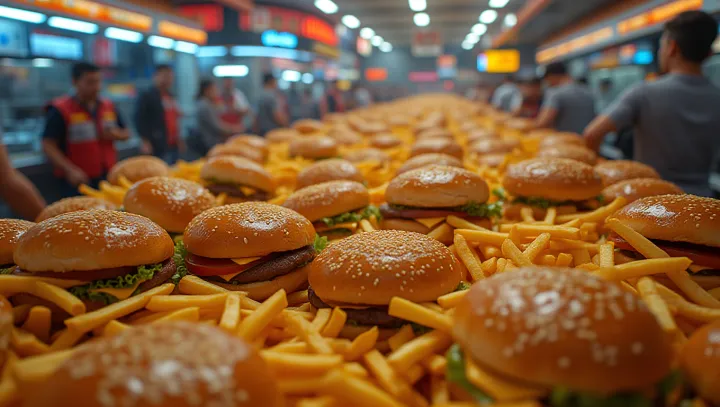Why Do We Devour Millions of Burgers Annually?

Every year, the world witnesses the consumption of millions of hamburgers. This culinary staple has garnered both admiration and curiosity, as it has become an emblem of globalization and culinary evolution. The global love affair with hamburgers and fries is deeply rooted in cultural history and economic realities.
To many, they represent a slice of nostalgia, a token of comfort food that transcends geographical and socioeconomic boundaries. Specialists like Dr. John Mellor, a professor of cultural studies at Oxford University, suggest that the hamburger's triumph over the global food market is due to its flexibility and adaptability.
'It's not just a food item,' Mellor explains, 'it's a cultural phenomenon that echoes the simplicity and satisfaction that modern consumers seek.' Fast food chains, from McDonald's to local outlets, have perpetuated this trend by infusing local flavors and components into their offerings, making the burger a canvas for cultural expression. The accompanying fries further enhance this experience, offering a perfect balance of texture and flavor. As eating habits continue evolving in response to health and environmental concerns, the question remains: will hamburgers and fries maintain their current level of popularity.
For now, these iconic foods continue to enjoy a revered spot on our tables.
